SUMMARY
This is AI generated summarization, which may have errors. For context, always refer to the full article.
![[ANALYSIS] Discernment of truths and the democratization of the internet](https://www.rappler.com/tachyon/2022/04/Analysis-discernment-truth-internet-Aprll-26-2022.jpg)
The “Discernment of truths and the democratization of the internet” is a study presented by the author from the Far Eastern University Public Policy Center in the eighth #FactsFirstPH research briefing held on April 26, 2022. The full copy of the research is reposted with permission.
The transition to Web 2.0 and the concomitant rise of social media platforms are democratizing the internet by propagating user-generated content (e.g., blogs, social media posts, and videos). Today, netizens are flooded with information provided both by established organizations and fellow netizens.
But the internet’s opening up of the gateways to information has likewise given opportunities for malicious actors to spread mis- and dis-information, which sow doubts on the credibility of established facts, reshape the audience’s knowledge base, and ultimately influence their perception of what is true.
Two Types of Thinking
The field of reasoning provides one explanation for our ability to distinguish the truth apart from falsehoods. The dual-process model of reasoning argues that we are capable of two types of processing. Type 1 processing is characterized by automaticity and its output is our intuitive response to stimuli. Type 2 processing is characterized by deliberation and is commonly referred to as analytic or critical thinking.
Previous studies have shown that critical thinking is associated with an ability to distinguish between fact and fiction. In particular, researchers have explored the correlation between engaging in critical thinking and the ability to identify fake and real news.
Their results suggest that we are more likely to fall victim to fake news when we do not engage in critical thinking.
The Role of Prior Knowledge
The impact of critical thinking on our ability to discern can be limited by our prior knowledge. When we engage in critical thinking, we process new information by comparing it with prior knowledge. Several studies have demonstrated the positive relationship between knowledge and the ability to spot fake news in politics, media, general information, and the COVID-19 pandemic.
When we are processing new information using prior knowledge that is distorted, incomplete, or fabricated, critical thinking may have little impact on our ability to spot fake news.
A related challenge we face is the growing reluctance to consider facts. In today’s post-truth world, people give less importance to factual truth and rely more on the sentiments of their “tribe” – the community they identify with – as the basis of their opinions.
The Classroom as a Battleground
The classroom is an ideal place to increase our ability to spot fake news. Students could acquire verified information from learning materials they are exposed to while practicing their data gathering and evaluation skills. More importantly, students could learn to make their own judgments when presented with the context and information about particular statements or situations. In particular, the social sciences provide students with an opportunity to simultaneously expand their knowledge about society and develop their critical thinking skills.
The State of ‘Araling Panlipunan’
In 2019, concerned about historical revisionism and a seeming lack of grounding in Philippine history among young Filipinos, Far Eastern University and select private higher education institutions (including Adamson University, Baliuag University, Centro Escolar University, Technological Institute of the Philippines, and University of the East) requested the FEU Public Policy Center (FPPC) to look into the problem.
In turn, the FPPC engaged one of its trustees, UP Professor Emeritus Dr. Maris Diokno, to head the initiative, which eventually branched out to form three components: (a) a review of the pedagogy of Araling Panlipunan; (b) a review of the textbooks used; and (c) the development of an assessment tool to track the desired student outcomes in the teaching and learning of history.
To undertake the second component of the Philippine history initiative, Dr. Diokno put together a team of UP historians to critically appraise the Araling Panlipunan textbooks that are used in Grades 5 and 6 of the school consortium. Because of the historical importance of the Marcos administration, the researchers paid special attention to its treatment in the textbooks. Their review makes the following observations:
- The textbooks could have allocated more space for the Marcos administration, given that it had the longest tenure, which spanned 21 years. In that time, many events of profound historical significance took place, including, to name a few, the communist insurgency, imposition of martial law, ratification of the 1973 Constitution, early 1980s global recession, and People Power Revolution.
- The textbooks provide little to no discussion of important topics such as Marcos’s arrogation of the 1973 Constitution for his own ends and the questionable ratification of the same via viva voce voting by barangay assemblies instead of by referendum, massive government corruption, and crony capitalism, among others.
- The authors’ commentaries on the economic performance during the period are not supported with economic data and therefore give an incomplete, if not false, narrative.
The review concludes that the textbooks do not give a complete view of Philippine history, and in particular of the Marcos administration. Moreover, they pose the danger that conclusive statements that are found in them, which are not buttressed by evidence, are liable to be misconstrued as facts.
The Department of Education specifies that the goals of the Araling Panlipunan curriculum can be met when students develop the following related skills: investigation; examination and interpretation of information; research; communication, particularly written essays; and compliance with ethical standards.
However, the team of historians also observed that the teaching of Araling Panlipunan continues to emphasize rote memorization. Students are typically assessed based on their ability to retain information on key dates, names, and places. More attention must be given to the teaching of Araling Panlipunan so that students can develop the critical thinking skills essential in a world where there is a deluge of information.
Philippine History and the 2022 Presidential Elections
Our knowledge of President Ferdinand Marcos, his family, and their role in Philippine History are once again thrust into the spotlight following the presidential bid of Ferdinand “Bongbong” Marcos, Jr. Conflicting beliefs related to the Marcos family center around key topics such as the country’s economic performance, the peace and order situation, human rights violations, and government corruption.
How the public perceives Marcos, Jr. will have important implications in the results of the May 2022 elections and the direction of the succeeding administration.
User Generated Content as Alternative Sources of Information
A simple online search using relevant keywords on the video streaming website YouTube results in a sample of videos that reflect the conflicting views about the Marcoses. Among those videos with a positive portrayal, the Philippines is often described as an Asian power during the Marcos administration that has since been overtaken by other Asian countries.
In one video with more than four million views, military assets acquired during the Marcos administration are enumerated to support the claim that the Philippines was a former military power in Asia. At the minimum, the video could have presented the military assets of other Asian countries. Without comparative information, viewers are not able to judge the claims objectively.
A fact-check piece had shown that the Philippines’ military assets were less than some ASEAN countries in 1974.
After going through the list of military assets, the video makes a conclusion that former President Marcos is worthy of admiration because taxpayers’ money was well-spent. While a listing of military assets could lend support to the claim, it would have been more prudent to gather additional information. For instance, information regarding the use of these assets would make for a stronger case. In addition, information regarding the other items the government could have spent for would be necessary.
The same video went on to discuss the Santa Barbara Project, which it erroneously called the Santa Clara Project, a missile development program in the 1970s. The video claimed that the Philippines was the first Asian country to launch a missile development program. The existence of the missile development is relatively easy to verify.
However, proving that the program exists does not necessarily make the Philippines the first country in Asia to have such a program. One would have to gather information about other countries and compare the timeline of their respective programs with that of the Philippines.
The claim about the country’s missile development program has already been debunked by a fact-check piece.
The video ends by bringing up an underground submarine program that allegedly came to an abrupt halt due to the political turmoil in the mid-1980s. The video argues that the Philippines could have developed like European countries that export military assets if only the two programs got continued government support. It praised the skill of Filipinos that worked on those two programs and hinted that it was still possible for the Philippines to achieve the status of being one of Asia’s military powers. It also suggested that the Philippines might not experience bullying from other countries if politics did not get in the way of progress. The last part of the video makes claims that are not substantiated and are clearly opinions of the content creator.
Viewer Discretion
Online content magnifies the problems observed in the textbook review. Like textbooks, online content can be selective of the topics it covers.
Given its format, it is not built to engage individuals in a comprehensive presentation and discussion of material. This increases the demand on netizens to conduct their own research before making any judgment.
Online content typically features statements that are clearly opinions of the content creator. In textbooks, this can be mitigated in the editorial process through the review of consultants and editors. In other learning materials prepared by teachers, there are typically subject coordinators and school administrators that conduct the review. Finally, teachers have the capacity to discuss with students inside the classroom.
Unlike textbooks and other learning materials, online content rarely goes through scrutiny. There are no consultants, editors, subject coordinators, and school administrators that review online content. As long as the content passes through community standards, the information presented finds a permanent home in cyberspace. Corrective action takes place after the damage has been done, part of a reporting system that is by no means perfect and is also vulnerable to abuse. Netizens are left to fend for themselves so as not to fall prey to individuals and groups with malicious intent.
The democratization of the internet gives each netizen the power to generate information. We have become both consumers and producers of information. As consumers, we need critical thinking skills when sifting through online information.
The burden on consumers will only continue to rise as more information is accumulated online. Fortunately, institutions can decrease this burden.
The education sector is primarily responsible for developing critical thinking. Media, private sector, and civil society can alter the landscape and make it easier for netizens to locate verified information and spot statements that require judgment.
As producers, we must hold ourselves accountable to the information we share. The same critical thinking skills that we apply when discerning information can be used when producing information. Misinformation will thrive only if society allows it. – Rappler.com
Justin Muyot is a Technical Consultant at the FEU Public Policy Center. He is a Senior Lecturer at the UP National College of Public Administration and Governance (NCPAG) and has taught courses on policy analysis, development planning, public finance, and economic systems. He obtained his undergraduate degree in business economics from the UP School of Economics in 2011 and completed the dual degree program (Master in Public Policy/Master in Public Administration) of the Lee Kuan Yew School of Public Policy (LKYSPP) and the London School of Economics and Political Science (LSE) in 2017.
Add a comment
How does this make you feel?
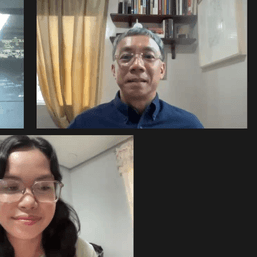
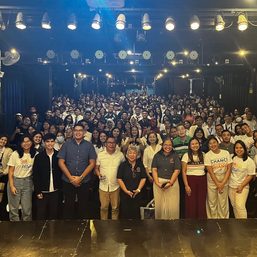
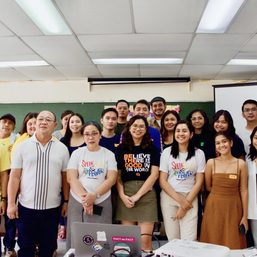
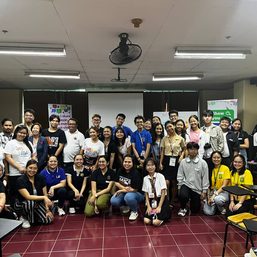
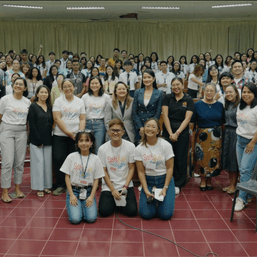
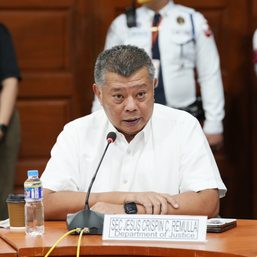
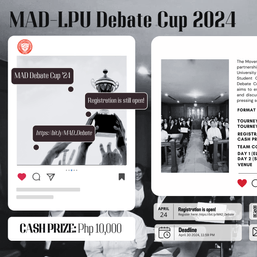





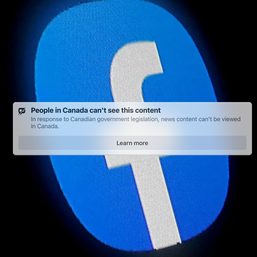
![[OPINYON] Takoyaki tattoo at ang business model ng pang-iinis](https://www.rappler.com/tachyon/2024/04/20240410-Takoyaki-tattoo.jpg?resize=257%2C257&crop_strategy=attention)
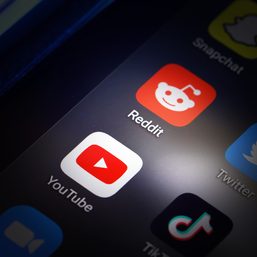
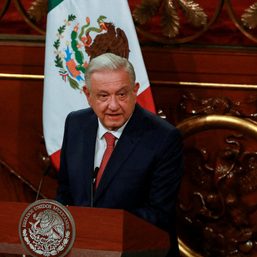
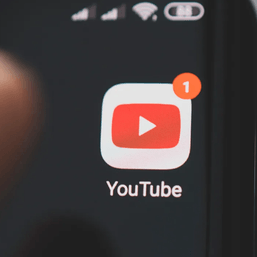
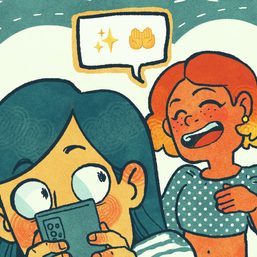
There are no comments yet. Add your comment to start the conversation.